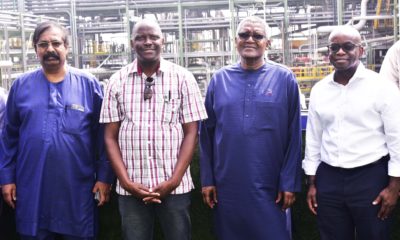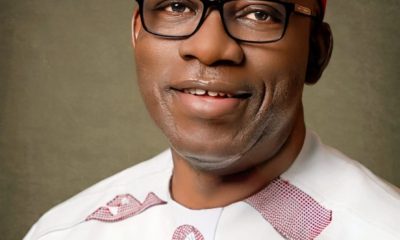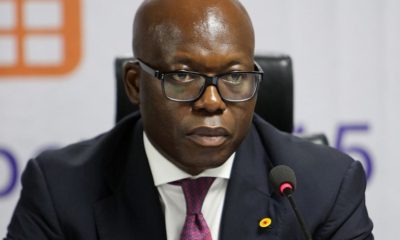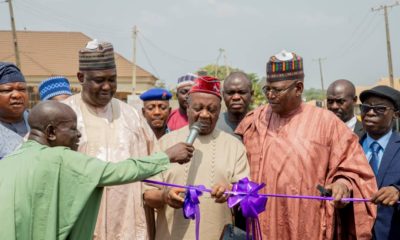News
Did You Approve Boarding Fee Hike In Technical Schools, Delta Parents Ask Governor Oborevwori
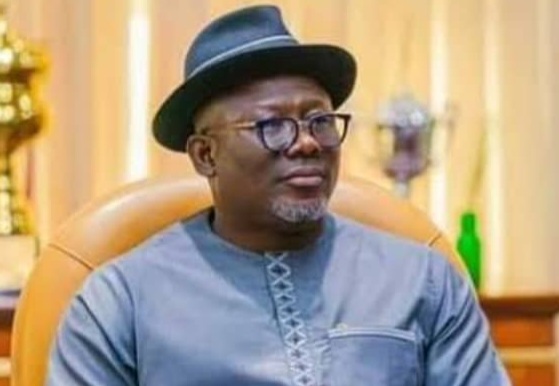
Parents of students in Delta State-owned Technical schools are seeking to verify if Governor Sheriff Oborevwori is aware of a recent hike in boarding fees from ₦85,000 to ₦250,000 per term.
The parents said that they are asking in view of the fact that there is no justification for the sharp hike, especially when Federal Government Colleges, some private schools as well as the Delta State-owned model secondary schools charge far less.
They also highlighted their concerns, citing the financial hardship that the hike has thrown them into.
In an open appeal, the parents asked the governor to clarify whether the fee increase was approved by his office or implemented by the Ministry of Technical Education without his consent. They also pointed out that the state owned government model secondary schools and colleges charge N60,000 while some private schools in the state capital, Asaba, charge ₦150,000, while similar schools in Lagos charge around ₦100,000 as boarding fees.
“We are struggling to understand why the state technical schools are demanding such a high amount. Federal Government Colleges charge ₦85,000 and even the State Government Model schools like Nana Government College Ughelli and others charge N60,000. We are even surprised that the best private schools in Asaba charge less than what is now being asked of us,” said a concerned parent.
A teacher from Ofagbe Technical School, speaking anonymously, expressed concern over recent fee increases imposed by the Ministry of Technical Education. He noted that the annual fee for junior and senior classes rose from N1,850 to N3,400, along with an additional compulsory N15,000 for medical and administrative charges. He also noted that prents are struggling to meet these new financial demands, leading many to withdraw their children from the school.
The teacher lamented that this situation disproportionately affects poorer families, who are already facing economic hardships. He added that although Delta State is supposed to provide free education in line with the Universal Basic Education Commission (UBEC) guidelines, the recent fee hikes contradict this promise, even as students are forced to pay for textbooks and medical services.
According to him, the unfortunate situation has led to a decline in enrolment numbers as families opt for other public secondary schools with lower fees, which range from N1,700 to N2,700. The teacher emphasized that the current educational policies seem to cater more to the middle class, risking a crisis in the educational sector.
Master Ochuko Favour, a young boy who recently completed his primary education, shared his disappointment at being unable to pursue his dream of attending technical school due to the financial burden. He revealed that he will settle for a local government secondary school. His plight highlights the systemic barriers that many students face in accessing education.
Also, a recent circular from the Ministry of Technical Education, dated September 17, 2024, has sparked concern over increased levies for students in government technical schools. While some fees align with those approved for public secondary schools, many stakeholders are questioning specific charges, particularly for students in JSS 1-3 and Pre-Vocational classes. These include a N2,000 administrative charge, a N3,000 medical fee introduced last academic year, a termly sports levy, and the mandatory purchase of Mathematics and English textbooks solely from the school.
Parents and stakeholders argue that these fees contravene the Compulsory, Free Universal Basic Education Act of 2004, which exempts students in the Basic Education Cohort from paying for government-provided services. They maintain that there is a pressing need for the state government to clarify the rationale behind these fees, as many view them as disguised tuition charges.
The situation is particularly concerning given that other states are actively working to improve their technical education systems and increase enrolment. The community is calling on the Delta State government to investigate the Ministry of Technical Education’s policies, suggesting that these changes may disproportionately burden low-income families and contradict the broader educational goals of the administration. The perception is that the ministry is prioritizing revenue collection over the needs of students and the community, which could undermine the vision for equitable education in the state.
A parent of a female student who gained admission to the school has decided to reject the offer in favor of a public model secondary school in Warri with boarding facilities. She cited lower fees and essential amenities as key reasons for her choice. Concerned about her child’s safety and the lack of basic facilities like electricity and water, she questioned why she should pay N250,000 for boarding when the school’s resources seemed inadequate. She expressed frustration over the Ministry’s failure to ensure the schools are functioning properly despite significant investments in its infrastructure.
Beyond the financial burden, the parents also raised concerns about the deplorable conditions of some of the technical schools. Reports from various institutions in the state reveal overcrowded classrooms, lack of electricity, and facilities and in some of the new model technical schools workshops and laboratories are now being converted into makeshift classrooms without adequate furniture. Parents who visited the schools said there was no official available to address their concerns.
“The classrooms are overcrowded, and there’s no light. Our children are not getting the education they deserve despite the high fees. When we visited to clarify the situation, there was no one to speak with us,” lamented Mr. Joseph Ighotegwolor, a concerned parent.
The parents also questioned why the Ministry of Technical Education continues to admit new students despite the existing lack of space and facilities to accommodate them. They urged the governor to intervene, fearing that the Ministry are more focused on increasing revenue than providing quality education as the Ministry of Basic and Secondary Education is not left out in this revenue drive by conducting supplementary entrance examination into the state model schools whereas most of the classrooms in the schools are already overcrowded.
Adding to their concerns, the parents highlighted a policy that forces students in the various technical schools who fail their promotion examination to leave the school without giving them the opportunity to repeat the classes. Many see this as an unfair practice, particularly in an environment that is not conducive to learning.
“Instead of helping students improve, they are asked to leave if they fail their exams. This is not right. These are young students who deserve support, not expulsion,” said Mrs. Amaka Udeh, a parent from Effurun.
The parents called on Governor Oborevwori to urgently investigate the fee increase, address the challenges affecting the technical schools, while ensuring their children receive a quality education.
Meanwhile, the recent policy change by the Ministry of Technical Education mandating entrance exams for all technical schools, including the six conventional ones, has created significant barriers for prospective students. Previously, these conventional schools accepted students without an entrance exam, making them accessible to a broader demographic.
With the entrance exam requirement, many students, especially those from lower-income backgrounds who struggle with funding, are unable to compete for admission. This situation has forced them to continue in regular public secondary schools, potentially limiting their vocational training opportunities and future career prospects.
Advising the government, the parents noted that adressing this issue may require revisiting the admissions policy to ensure that all students have equitable access to technical education, possibly by providing financial support for exam preparation and related costs or by reinstating more inclusive admission criteria for conventional schools.



